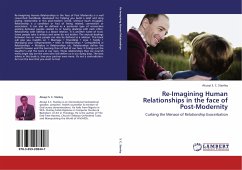In 2011, the March 11 event in Japan (a major earthquake, tsunami, and nuclear accident) has entirely reversed the sense of reality and values of Japanese people. In an attempt to deal with this catastrophe, scientists, medical experts, politicians, sociologists, and journalists have taken concrete and effective measures. With regard to humanities, what effective contribution can be made by this discipline, which, in different ways, aims to question the activities of humanity? Catastrophic events constitute historical moments in which the limits between humans and nature, humans and civilization, and humans and history are the most exposed, thus forcing us to radically rethink these concepts and our reality. Indeed, language and imagination are powerless against catastrophes. However, it is only after being exposed to the experience of powerlessness that we can turn to a reality that cannot be responded to without language and image.
Bitte wählen Sie Ihr Anliegen aus.
Rechnungen
Retourenschein anfordern
Bestellstatus
Storno








